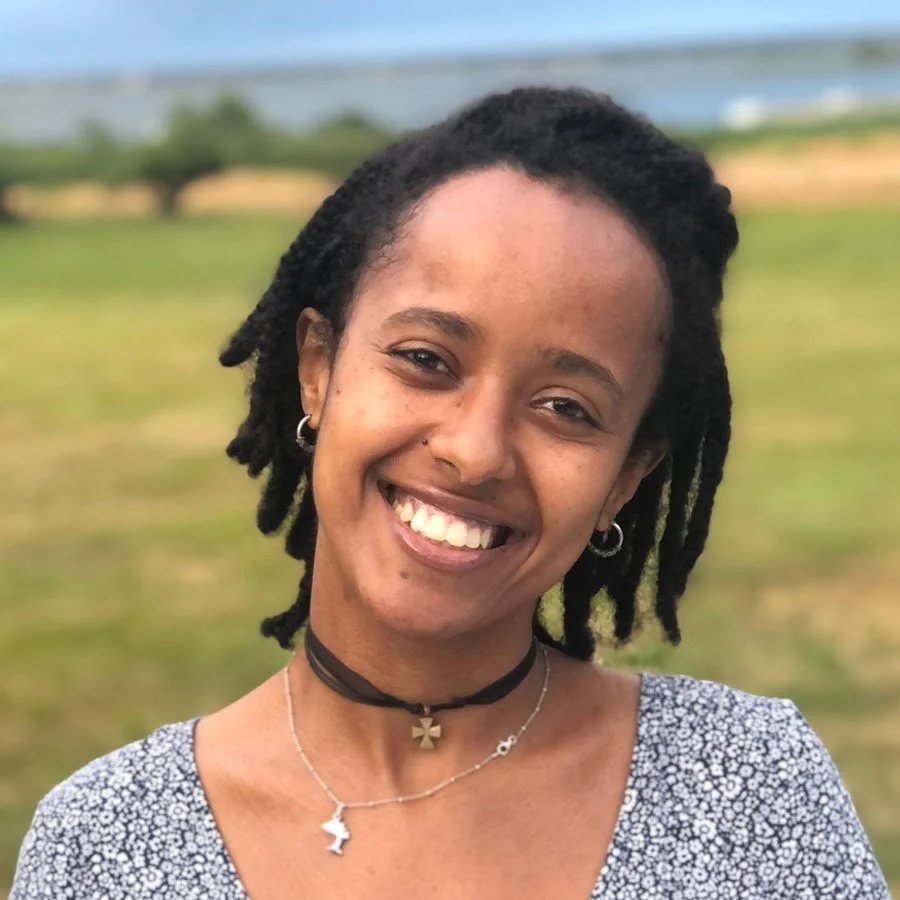Jember looks down at her uncle. He is on his back, like a beetle that has tumbled belly up, squat legs kicking the air above him. Boiling water has broken his face, and his mouth is open in the shape of a howl Jember cannot hear. Her face remains blank as he screams, as the bottom of the pot sears her palms. She drops the pot eventually, earthenware shattering and just missing his head. The parched ground beneath it sated.
For my sister, she says, as she steps over the beetle and out of the kitchen.
Outside she grabs the sickle from against the mud wall. The sun dizzies her walk down the hill, and still forward she goes, toward the wind-whipped fields of sorghum. For my sister, she repeats. But would she have done it if he hadn’t come at her too? His hand slipping across her waist as she reached for a sefed hanging on the wall. That’s when she pushed him and he fell. The water had been bubbling in the pot over the fire when she picked it up and hurled it in his face. This sequence will remain clear in her mind. It is what she will tell the village police when they come. It is the later parts she will have trouble with.
For now it is enough that Mistir will be safe when Jember returns to school in two weeks, when their mother leaves home to sell grain on market Tuesdays. For now, there is still a day’s worth of work left to do. It is harvest time, and sorghum heads don’t cut themselves.
In the field she angles the sickle and pulls at the bases of the stalks, severing them at the roots. Salt water runs down her back in the insistent heat, her palms thickening with blisters that have yet to form.
When the cries eventually come from the hilltop, they are muffled by the sorghum bulbs swaying in the dry wind. Jember doesn’t look up. From the compound she would appear as a speckle beneath them, if at all. She continues working, her movements a chorus of muscle memory.
When footsteps approach and Jember hears the sound of dry leaves crunching underfoot, she still does not consider running. But her throat aches at the sight of her sister, Mistir, her small guiltless hands wrapped around her mother’s forearm. Jember is only sorry that she couldn’t protect Mistir sooner.
She turns to face her mother. “Isn’t enough enough?” But her words fall flatter then a sickle slipping onto a bed of harvested stalks.
It’s not a confession, but it turns Enatay’s face. “What evil have you brought upon us?”
Here is where Jember’s memory will fail.
Which came first? The disgust in Mistir’s face or her own pleading words: But you’re safe now.
Which came first? The hurried footfalls behind them or Enatay telling Jember never to return?
It doesn’t matter. In the end, Jember is left standing alone, looking down at her scorched hands, a monstrous thing.
Contributor Notes
Heran Abate is an Ethiopian writer based in Brooklyn. Her practice is deeply rooted in archives and oral testimonies that reveal stories often at the fringes of history and literature.





